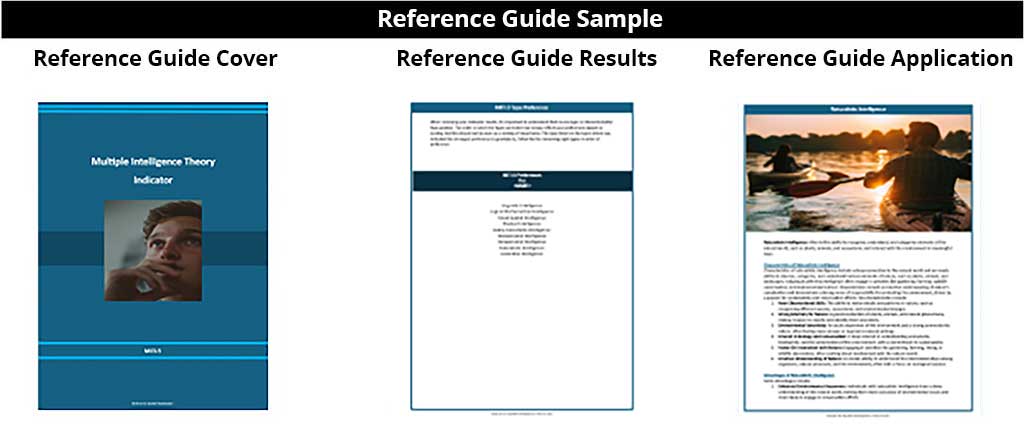Multiple intelligence theory, developed by Howard Gardner, suggests that individuals possess various types of intelligence, each representing different ways of processing information and solving problems. These intelligences include linguistic, logical-mathematical, spatial, bodily-kinesthetic, musical, interpersonal, intrapersonal, and naturalistic. The theory emphasizes that people have unique cognitive strengths, and traditional measures of intelligence, such as IQ tests, fail to capture the full scope of human potential. Recognizing and nurturing these diverse intelligences is important because it allows for a more inclusive and holistic approach to education, fostering personal growth and enabling individuals to excel in areas that align with their natural talents. This understanding also promotes a deeper appreciation for the varied ways people contribute to society, whether in creative, analytical, or social contexts.
This course includes an assessment and a reference guide with explanations to assist you in processing and understanding the results of your indicator. By taking this indicator, you have started your journey to understanding yourself and others better and have additional alternatives in how you respond in various situations.
As with all assessments and indicators, our intent is to use them for learning and creating awareness. There is no right or wrong answer, and you realize you will have varying levels of proficiency and/or awareness based on the situation with each of them. The goal of the indicator is to broaden your awareness of the components you have comfort in and enhance the components that offer you varying opportunities for growth.
Learning Objectives
The Multiple Intelligence Type Indicator helps individuals discover their unique cognitive strengths based on Howard Gardner’s theory of multiple intelligence. This assessment tool provides insights into the different ways people learn, think, and problem-solve, by categorizing intellectual abilities into eight types: linguistic, logical-mathematical, spatial, bodily-kinesthetic, musical, interpersonal, intrapersonal, and naturalistic. By recognizing their primary intelligence types, individuals can tailor their learning approaches better, enhancing both academic performance and personal growth. This awareness fosters a deeper understanding of personal preferences, enabling individuals to thrive in various learning and professional environments.
Upon completion, review your preferences and the accompanying booklet, you should be able to:
- Understand the concept of multiple intelligences and its significance in learning.
- Identify and assess your intelligence types through a Multiple Intelligence Type Indicator.
- Recognize the diversity of cognitive strengths among individuals and appreciate their own unique learning styles.
- Develop strategies to enhance learning in your preference types and explore ways to strengthen less preference types.
- Apply knowledge of multiple intelligences to create more inclusive and personalized learning environments.
Process, Results, and Reference Guide
In a moment you will take the Multiple Intelligence Type Indicator to provide insights into the different ways people learn, think, and problem-solve, by categorizing intellectual abilities into eight types: linguistic, logical-mathematical, spatial, bodily-kinesthetic, musical, interpersonal, intrapersonal, and naturalistic. Once you complete the payment process an email will be sent to you with a link to the assessment directly. Make sure to save this email, as it is your record proof of purchase. Next, you will follow the link supplied and complete the assessment. Once you have completed the indicator and submitted it, you will receive a personalized reference guide via email with a personalized summary report outlining your preferred Multiple Intelligence Type based on your preferences, with a resource guide interpreting the results. You will be introduced to possible “next step(s)†for strategizing and developing a plan to maintain your strengths and address your opportunities for growth. We hope you find value in the results.

I-AD offers other services to add value to your personal and professional growth. Consider meeting with a coach or training consultation to enhance your complete organization.
Coaching
Looking for a more in-depth discussion on interpreting the usefulness of your results? Coaching sessions are available to purchase with an expert coach on Emotional Intelligence. Please go to I-AD Topic Exploration Coaching Services to purchase and schedule a coaching session.
Training Consultation
Looking for a way to enhance your team and office interaction with one another? You may want to consider discussing these needs by contacting an I-AD Consultant and Master Trainer.


